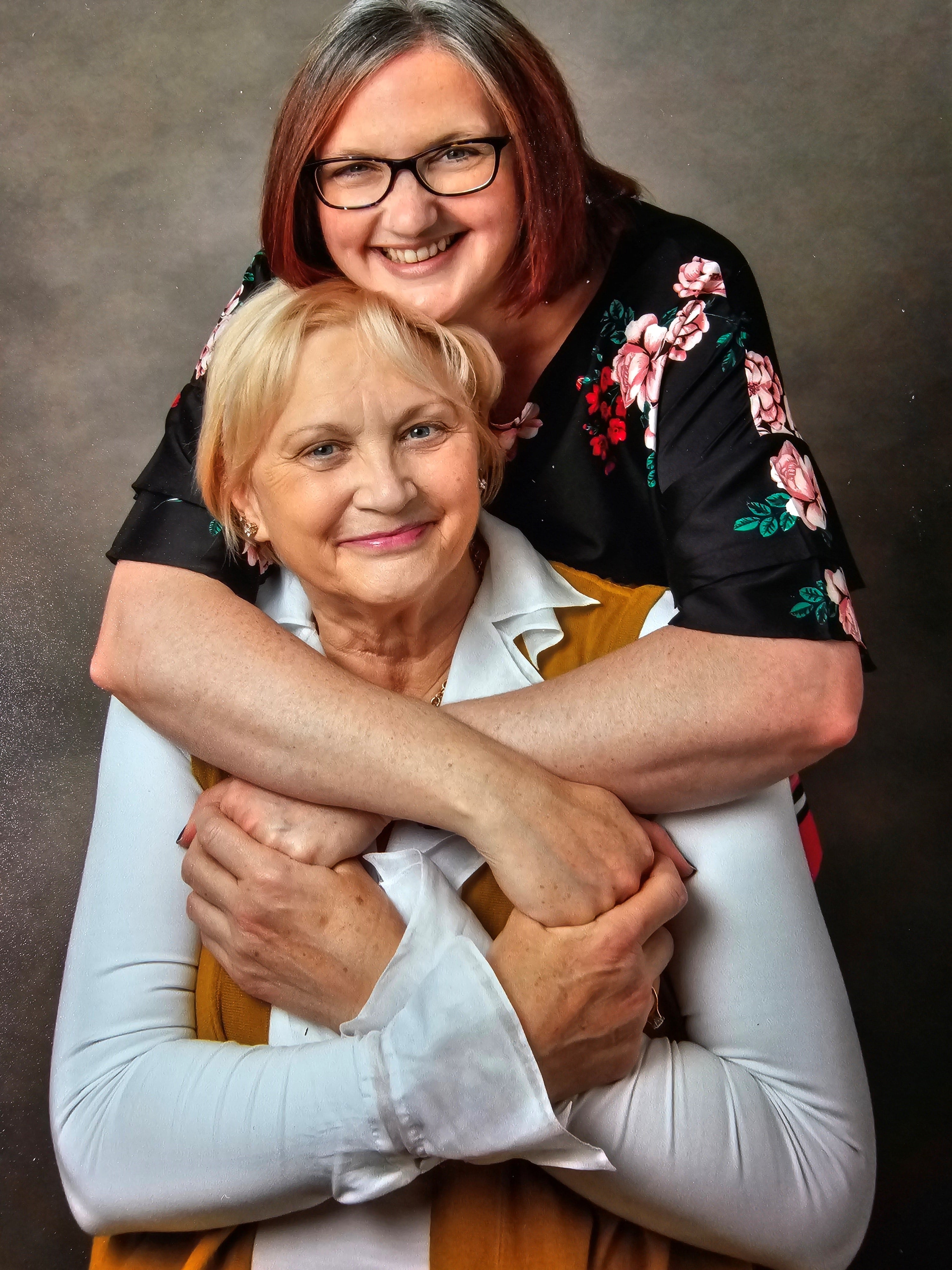Sally, 51 from Preston, supports her 70 year old mum, Judith, who has lived with ME for almost 20 years. Along the way Sally has juggled a full-time job with looking after three children, whilst also continuing to keep a close eye on her Mum. The support that Sally provides is invaluable, yet Sally feels that the work of carers is unrecognised and unappreciated – not by the people they are caring for, but by the authorities.
My Mum has always been a strong, independent woman, and someone I can turn to. She’s always been my rock, and when my son (who is now in his 20s) was bullied at primary school, she was always there. She’s been a rock.
Mum used to run her own business, but in 2006 she became poorly and decided to sell up and retire. She was eventually diagnosed with ME, and today her life is led by her energy levels. ME does affect what she can do physically as well as her mental health. Mum has a quirky sense of humour, and she used to rise to a challenge, but now she has lost a lot of confidence and even the small things make her flustered.
We have always lived in the same town, but it was becoming challenging to cope with my daily commitments and also have the time to be there when Mum needed, so she moved house and now lives next door, which makes it easier for me to care for her. This has reduced the pressure a little and ensures that she always has company and the help needed.
As Mum’s carer, I do a lot, but I often feel that I don’t do enough because I know she is at home by herself. I work and we have a busy family life – two of my children have Autism and there always a lot going on. I sometimes feel as if the walls are closing in and that everything is against me. Our family joins together to help Mum out around the home several times a week. For instance, my husband is a qualified electrician and can tackle the odd jobs. My three children often pop in next door to keep Mum company or to have a spot of lunch, which helps reduce loneliness. They’re a good distraction for her.
On a Friday, I don’t work so I may take Mum to a garden centre, to collect shopping or to a medical appointment, or just to tick off some jobs around the house. Of course, if she doesn’t have the energy to shop, I will pick up anything she needs
I also arrange a lot of family days and ensure that whatever we do is suitable for Mum too. She used to come along to the local curry house but now she finds that difficult, so we’ll bring a takeaway back to keep her included; we adapt things as needed.
I feel that the work of carers is largely unrecognised. A lot of carers are unappreciated as people, aside from those being cared for, people do not always fully understand what is involved. We are not seen as a priority by the authorities even though we are often propping up the level of care that a person should be receiving. There needs to be preventive support, instead of people only gaining the support needed when crisis point is reached.
As a carer, I do often have guilty feelings, and I know that my mum sometimes doesn’t ask for help because she knows I have a lot on. Another issue is the lack of understanding about the symptoms of ME. My mum is 70 years old, but because she doesn’t look her age, people don’t realise that she is struggling on a day-to-day basis. There simply isn’t the support in place for carers, and they don’t get the chance to look after themselves because it’s not top of their priority list. The one thing that I try to do, is to talk to someone to offload as it can otherwise be a lot to manage.
My advice for carers is to try and take the time out for yourself and make sure that you’re ok.

With thanks to Sally and the ME Association for sharing this story.

